-
 Bitcoin
Bitcoin $82,509.8850
-2.52% -
 Ethereum
Ethereum $1,800.3816
-3.46% -
 Tether USDt
Tether USDt $0.9996
-0.02% -
 XRP
XRP $2.0537
-1.80% -
 BNB
BNB $589.5226
-1.44% -
 USDC
USDC $1.0000
0.02% -
 Solana
Solana $116.3439
-6.85% -
 Dogecoin
Dogecoin $0.1595
-5.58% -
 Cardano
Cardano $0.6479
-2.79% -
 TRON
TRON $0.2366
-0.33% -
 Toncoin
Toncoin $3.5766
-9.59% -
 UNUS SED LEO
UNUS SED LEO $9.3922
-0.34% -
 Chainlink
Chainlink $12.7758
-5.57% -
 Stellar
Stellar $0.2586
-2.92% -
 Avalanche
Avalanche $18.1038
-3.99% -
 Sui
Sui $2.2274
-5.69% -
 Shiba Inu
Shiba Inu $0.0...01219
-1.98% -
 Hedera
Hedera $0.1627
-3.05% -
 Polkadot
Polkadot $4.0427
-1.01% -
 Litecoin
Litecoin $82.8658
-2.85% -
 MANTRA
MANTRA $6.3993
1.10% -
 Bitcoin Cash
Bitcoin Cash $298.9153
-0.95% -
 Bitget Token
Bitget Token $4.4795
-2.24% -
 Dai
Dai $0.9999
0.01% -
 Ethena USDe
Ethena USDe $0.9994
-0.04% -
 Hyperliquid
Hyperliquid $11.7782
-8.21% -
 Monero
Monero $212.0245
-3.58% -
 Pi
Pi $0.5720
-14.14% -
 Uniswap
Uniswap $5.8118
-4.56% -
 Aptos
Aptos $5.0504
-4.12%
what is the best hot wallet for cryptocurrency
For ease of access and versatility, MetaMask seamlessly integrates with multiple browsers, enabling users to manage Ethereum-based crypto assets and interact with decentralized applications effortlessly.
Oct 11, 2024 at 02:06 pm
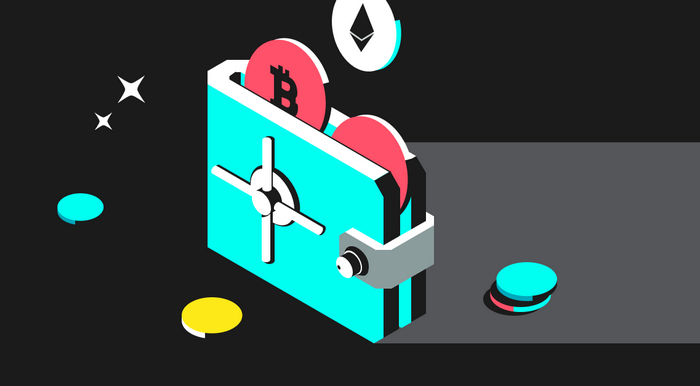
Best Cryptocurrency Hot Wallets
- MetaMask: A popular browser extension wallet supporting multiple cryptocurrencies and decentralized applications (dApps). It allows users to manage their assets securely and interact with the Ethereum network.
Features:
- Integrates with multiple browsers.
- Supports major cryptocurrencies like Ethereum, Bitcoin, and Stablecoins.
- Connects to various dApps for DeFi and NFT trading.
- Exodus: A user-friendly desktop and mobile wallet that provides a centralized platform for managing multiple crypto assets. It offers an intuitive interface and supports a wide range of cryptocurrencies.
Features:
- Supports over 100 cryptocurrencies.
- Provides portfolio tracking and market analysis tools.
- Offers built-in exchange for easy token swaps.
- Coinbase Wallet: A mobile and browser-based hot wallet from the renowned Coinbase cryptocurrency exchange. It offers high security features and supports a diverse range of digital assets.
Features:
- Connected to the Coinbase custody service.
- Supports major cryptocurrencies, NFTs, and dApps.
- Provides advanced security measures like cold storage and 2FA.
- Trust Wallet: A popular mobile wallet for Android and iOS devices that supports a wide variety of cryptocurrencies and tokens. It also serves as a gateway to DeFi and Web3 applications.
Features:
- Supports numerous cryptocurrencies, NFTs, and dApps.
- Connects to various decentralized exchanges (DEXs).
- Offers built-in staking for earning yield.
- ZenGo: A biometric-secured mobile wallet that provides a simplified and user-friendly experience. It emphasizes security and eliminates the need for seed phrases or private keys.
Features:
- No seed phrase management required.
- Uses biometric security measures like Face ID or Touch ID.
- Supports multiple cryptocurrencies.
- Ledger Live: A companion software for hardware wallets from Ledger. It allows users to manage their cryptocurrency assets offline while offering additional features and connectivity to dApps.
Features:
- Connects to Ledger hardware wallets.
- Supports a wide range of cryptocurrencies.
- Integrates with DeFi and NFT platforms.
- Atomic Wallet: A desktop and mobile wallet that supports over 300 crypto assets. It offers an easy-to-use interface and features built-in exchange and staking functionality.
Features:
- Supports multiple cryptocurrencies.
- Offers built-in atomic swaps for instant token swaps.
- Provides staking rewards for various crypto assets.
- Electrum: A lightweight, open-source Bitcoin wallet that prioritizes privacy and security. It offers advanced features for managing multiple wallets and transactions.
Features:
- Focused on Bitcoin.
- Provides advanced privacy features like Tor and coin control.
- Supports hardware wallet integration.
Disclaimer:info@kdj.com
The information provided is not trading advice. kdj.com does not assume any responsibility for any investments made based on the information provided in this article. Cryptocurrencies are highly volatile and it is highly recommended that you invest with caution after thorough research!
If you believe that the content used on this website infringes your copyright, please contact us immediately (info@kdj.com) and we will delete it promptly.
- How XRPL Utility Can Support Token Price Growth
- 2025-04-04 05:35:12
- Long-dormant Bitcoin wallets have suddenly sprung to life
- 2025-04-04 05:35:12
- ExoraPad ($EXP), an innovative AI-powered launchpad exclusively developed for the XRP Ledger (XRPL), has reached an impressive milestone
- 2025-04-04 05:30:12
- XRP Price Surge Could Enable Early Retirement for Numerous Investors
- 2025-04-04 05:30:12
- XRP Price Prediction: Will XRP Bounce From This Support Or Continue Its Descent?
- 2025-04-04 05:25:12
- As US Treasury yields hit 6-month lows, Bitcoin (BTC) price may be poised for a breakout
- 2025-04-04 05:25:12
Related knowledge
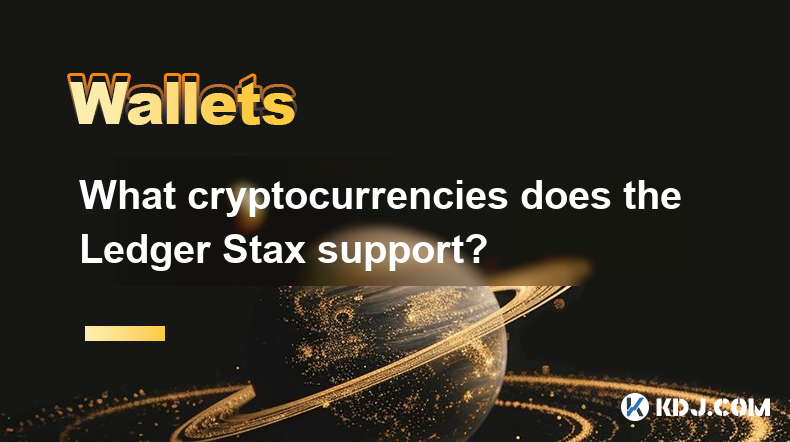
What cryptocurrencies does the Ledger Stax support?
Apr 04,2025 at 02:00am
The Ledger Stax is a highly advanced hardware wallet designed to provide secure storage for a wide range of cryptocurrencies. It is essential for users to understand which cryptocurrencies are supported by the Ledger Stax to ensure they can manage their digital assets effectively. In this article, we will explore the various cryptocurrencies that the Le...
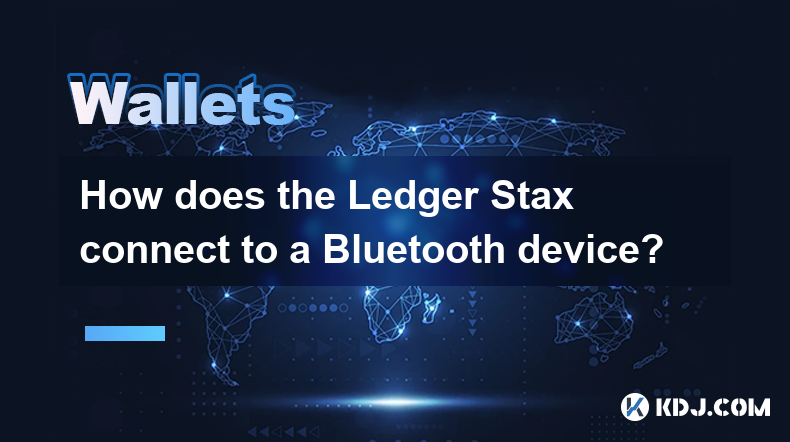
How does the Ledger Stax connect to a Bluetooth device?
Apr 03,2025 at 11:07pm
Introduction to Ledger Stax and Bluetooth ConnectivityThe Ledger Stax is a cutting-edge hardware wallet designed to provide secure storage for your cryptocurrencies. One of its key features is the ability to connect to other devices via Bluetooth, which enhances its usability and convenience. In this article, we will explore in detail how the Ledger Sta...
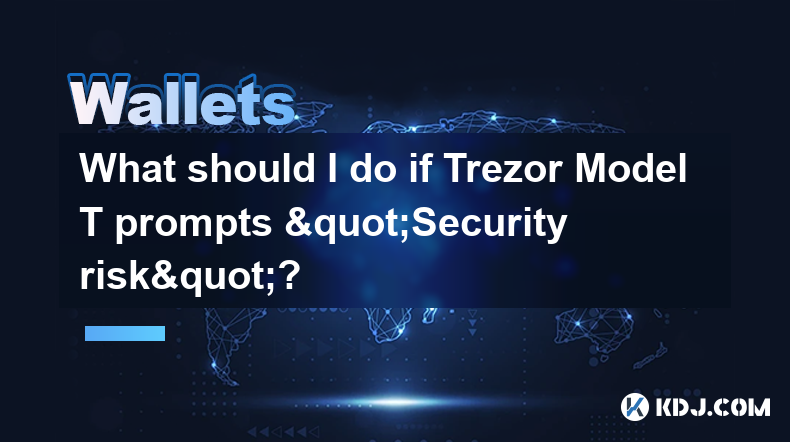
What should I do if Trezor Model T prompts "Security risk"?
Apr 04,2025 at 04:56am
If your Trezor Model T displays a 'Security risk' message, it's crucial to address this issue promptly to ensure the security of your cryptocurrency assets. This warning typically appears when there is a potential threat to your device or when the device detects unusual activity. Here's a detailed guide on how to handle this situation. Understanding the...
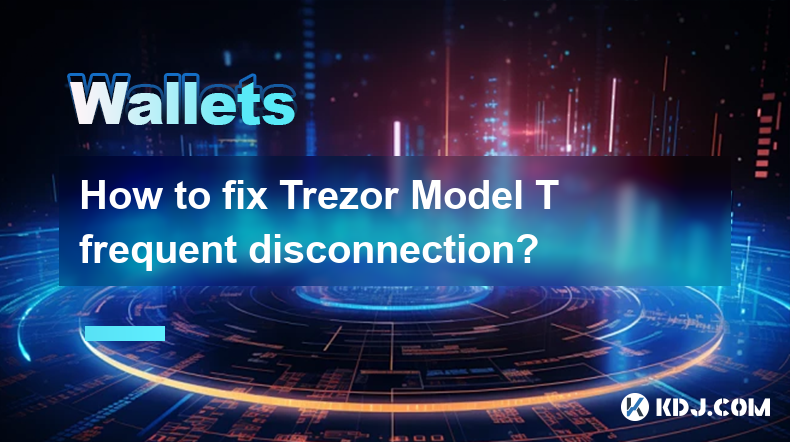
How to fix Trezor Model T frequent disconnection?
Apr 04,2025 at 01:01am
Introduction to Trezor Model T Disconnection IssuesThe Trezor Model T is a popular hardware wallet used by cryptocurrency enthusiasts to securely store their digital assets. However, some users have reported experiencing frequent disconnections, which can be frustrating and potentially compromise the security of their transactions. In this article, we w...
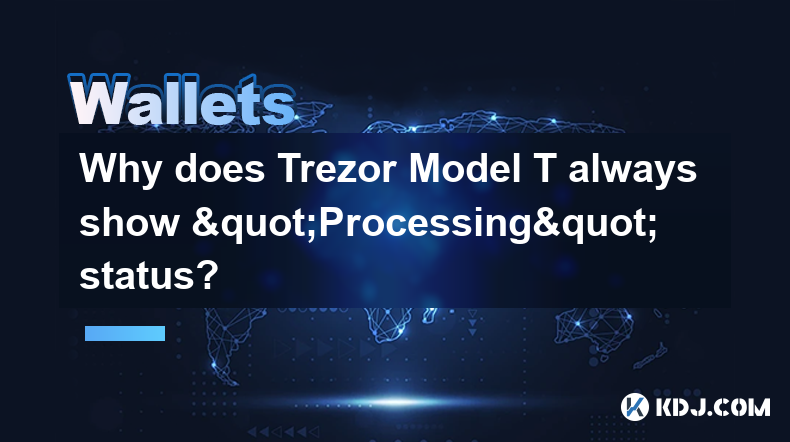
Why does Trezor Model T always show "Processing" status?
Apr 04,2025 at 01:07am
Introduction to Trezor Model TThe Trezor Model T is a popular hardware wallet designed to securely store cryptocurrencies. It is known for its robust security features and user-friendly interface. However, some users have reported encountering a persistent 'Processing' status on their device, which can be frustrating and confusing. This article will exp...
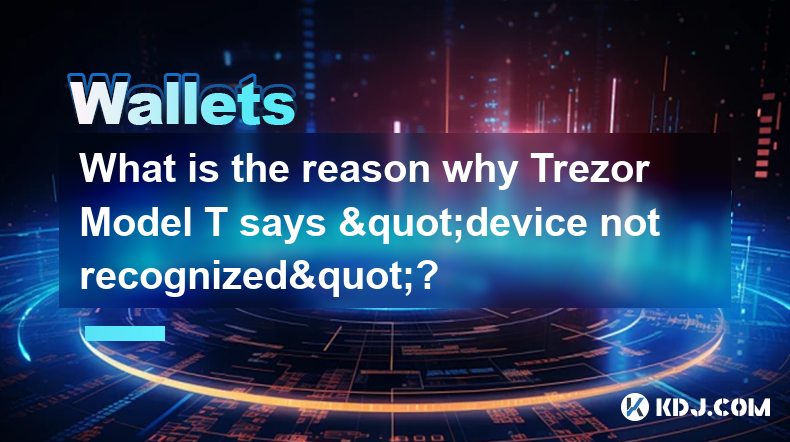
What is the reason why Trezor Model T says "device not recognized"?
Apr 04,2025 at 04:14am
Introduction to Trezor Model TThe Trezor Model T is a popular hardware wallet used by cryptocurrency enthusiasts to securely store their digital assets. It is designed to provide a high level of security by keeping private keys offline and away from potential online threats. However, users may occasionally encounter issues such as the device not being r...

What cryptocurrencies does the Ledger Stax support?
Apr 04,2025 at 02:00am
The Ledger Stax is a highly advanced hardware wallet designed to provide secure storage for a wide range of cryptocurrencies. It is essential for users to understand which cryptocurrencies are supported by the Ledger Stax to ensure they can manage their digital assets effectively. In this article, we will explore the various cryptocurrencies that the Le...

How does the Ledger Stax connect to a Bluetooth device?
Apr 03,2025 at 11:07pm
Introduction to Ledger Stax and Bluetooth ConnectivityThe Ledger Stax is a cutting-edge hardware wallet designed to provide secure storage for your cryptocurrencies. One of its key features is the ability to connect to other devices via Bluetooth, which enhances its usability and convenience. In this article, we will explore in detail how the Ledger Sta...

What should I do if Trezor Model T prompts "Security risk"?
Apr 04,2025 at 04:56am
If your Trezor Model T displays a 'Security risk' message, it's crucial to address this issue promptly to ensure the security of your cryptocurrency assets. This warning typically appears when there is a potential threat to your device or when the device detects unusual activity. Here's a detailed guide on how to handle this situation. Understanding the...

How to fix Trezor Model T frequent disconnection?
Apr 04,2025 at 01:01am
Introduction to Trezor Model T Disconnection IssuesThe Trezor Model T is a popular hardware wallet used by cryptocurrency enthusiasts to securely store their digital assets. However, some users have reported experiencing frequent disconnections, which can be frustrating and potentially compromise the security of their transactions. In this article, we w...

Why does Trezor Model T always show "Processing" status?
Apr 04,2025 at 01:07am
Introduction to Trezor Model TThe Trezor Model T is a popular hardware wallet designed to securely store cryptocurrencies. It is known for its robust security features and user-friendly interface. However, some users have reported encountering a persistent 'Processing' status on their device, which can be frustrating and confusing. This article will exp...

What is the reason why Trezor Model T says "device not recognized"?
Apr 04,2025 at 04:14am
Introduction to Trezor Model TThe Trezor Model T is a popular hardware wallet used by cryptocurrency enthusiasts to securely store their digital assets. It is designed to provide a high level of security by keeping private keys offline and away from potential online threats. However, users may occasionally encounter issues such as the device not being r...
See all articles






















































































